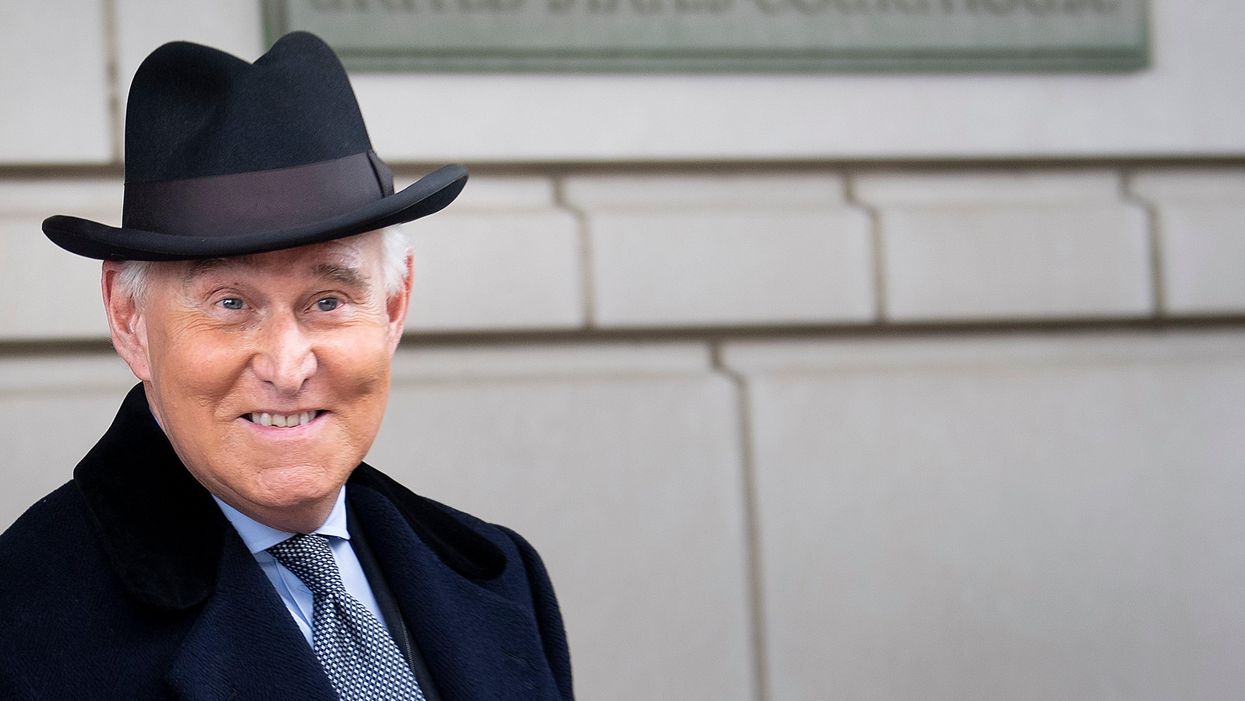The president's pardon power is thought by many to be virtually unlimited. As he heads out the door, President Trump's pardoning of criminals who lack remorse and cronies who lack conscience challenges us to reexamine that belief.
The unadorned words of the Constitution seem to place no limits on the pardon power except in the case of impeachment. But skeptics may be forgiven for asking why the Constitution should permit pardons for murderers, thieves, tax-cheats, fraudsters and secret foreign agents — or those who have obstructed justice, lied to the FBI, abused immigrants, used campaign and corporate cash for improper purposes, disguised personal expenditures as charitable contributions and used prostitutes to entrap enemies.
Pardons like these undermine the entire criminal justice system. If you're a Trump crony or someone who obstructed justice to protect him, crimes are not really crimes. They are a sordid badge of honor.
There are two systems of justice in this country, one for the rich and well-connected and the other for everyone else. Trump's pardons create two more categories, one for those in the president's favor and another for those who are not. Criminals in the president's favor go free. The rest end up in jail. There is little wonder why cynicism runs rampant.
Cynicism will be one of the lasting legacies in Trump's parade of horrors. And it pervades much more than the administration of justice.
Consider: Use of the White House to enrich the president and his family, use of the Justice Department to protect the president personally and punish the president's enemies, interference with congressional oversight responsibilities by withholding information or prohibiting witnesses from testifying.
Consider also retaliation against whistleblowers, governing by executive order instead of congressional enactment, trashing international agreements, encouraging violence, failing to protect the public from a health crisis for fear of hurting the stock market — and, at the end, throwing the country into turmoil by falsely challenging the legitimacy of presidential elections.
We used to think it cannot happen here. Well, it has been happening here, and the country must do something about it. We cannot afford simply to hope that another Trump will not reappear in the Oval Office. Human nature has not changed. Greed, the seduction of power, and lack of moral principle lurk in the shadows, ready always to pounce. Future Trumps may be more skilled than the original in stealing democracy.
Tackling the unfettered exercise of the pardon power should be among the first orders of business in the new Biden administration. The Constitution must not be allowed to become a death warrant when politicians behave as if it contained no constraints.
The pardon power has been used by President Trump to create a class of citizens who are above the law. It has been bad enough when Trump issued a pardon after a conviction or guilty plea. It has been even worse when he has telegraphed in advance that pardons for future illegal behavior are likely. That is nothing more than a license to ignore the law. And when a president pardons those who commit crimes in service of his interests, he licenses his own wrongdoing as well.
Richard Nixon one haughtily proclaimed that "when the president does it, that means that it is not illegal." Trump once said that he could shoot someone on Fifth Avenue, and no one would stop him. A president who wields the pardon to shield his own criminality would be out-Nixoning Nixon.
The fact that the Constitution appears to place few restrictions on the exercise of the pardon power should not be an insuperable obstacle to reform. Many matters on which the Constitution is silent are dealt with through legislation to fill in gaps or reconcile conflicting provisions.
Among the many examples are constraints imposed by legislation on the use of firearms despite the absence of constraining words in the Second Amendment. Another is the permission enshrined in law to sue for libel or provide government support for religious-run schools despite the absence of constraining words in the First Amendment.
It is hard to imagine any good argument for permitting pardons as personal or political favors or to cover up a president's wrongdoing. It is equally hard to imagine a good argument against constraining the pardon power to cases of recognized injustice or situations of compelling mercy.
Some say that there are difficulties under the Constitution in trying to restrict the president's pardon power or defining when pardons are appropriate. Some also say there are difficulties in tackling other presidential abuses of power.
But difficult issues are difficult because of their importance. A hope that the depredations of the Trump administration will disappear when Trump is out of the Oval Office is naïve. Abuses of presidential power have been accumulating for decades. Reform of the pardon power is an essential starting point despite the challenges because the corrupt forgiveness of criminality is the rot that will eventually destroy the Constitution itself and render other reforms irrelevant.
In Shakespeare's "Merchant of Venice," Portia instructs that "the quality of mercy is not strained" and that mercy blesses the giver as well as the receiver. A corrupt pardon dressed in robes of phony mercy blesses neither. It diminishes both giver and receiver and threatens the rule of law that is the bedrock of American democracy.



















Trump & Hegseth gave Mark Kelly a huge 2028 gift